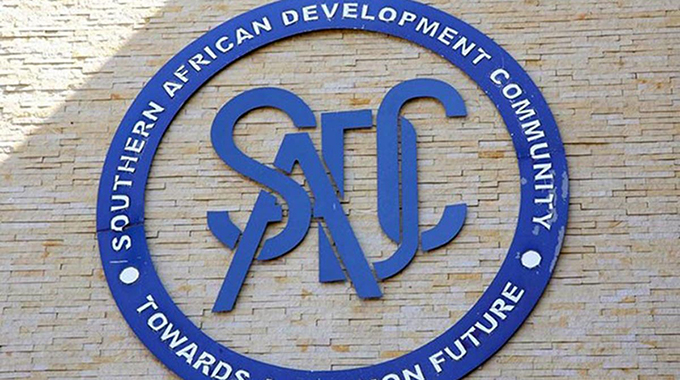Climate change a security threat-SADC

Columbus Mabika
Herald Report
Climate change is now a security challenge posing risks to regional economic development and security, Interpol Regional Specialised officer for SADC, Colonel Pierre du Toit, has said.
He was speaking during a presentation titled “Challenges and opportunities in combating non-traditional security threats in the SADC region”, to participants of the National Defence Course at the Zimbabwe National Defence University last week.
Col du Toit said climate change continued to present unprecedented calamities that call for capacity building by the defence and security cluster.
“The SADC region, just like the rest of the continent and the world over, is plagued by a broad spectrum of traditional and non-traditional security threats. The continuing reality and complexity of non-traditional security threats creates widespread challenges in contemporary regional defence, policing, political and economic sectors in the SADC region,” he said.
“Climate change poses a number of risks to SADC goals for regional economic development. Increased frequency of floods, cyclones, and droughts has damaged infrastructure, destroyed agricultural crops and thus negatively impacted on food security, disrupted livelihoods, and caused loss of life.
“The region’s vulnerability highlighted during 2022, with cyclones Batsirai and Ana with Madagascar being particularly hard-hit. During February 2022, the Malawian Meteorological Department warned citizens of further flooding after (Cyclone) Ana, then already downgraded to a tropical storm, killed at least 32 persons in the country.”
Col du Toit said the SADC region is expected to experience worse heatwaves than in the past, which will affect rainfall, winds, and the timing and intensity of weather events.
The continuing reality and complexity of non-traditional security threats create widespread challenges in contemporary regional defence, policing, political and economic sectors in the region.
Col du Toit said with the various interventions set out by SADC in line with its objectives, the region had been able to minimise the negative impact of non-traditional security threats by devising programs that are responsive to the needs of its member States.
Turning to irregular migration which is on the rise in the region, he said it was also posing multiple challenges to countries of origin, transit and destination.
“Illegal migrants are particularly vulnerable to discrimination, exploitation and abuse,” he said.
On infectious diseases, Col du Toit said they were continuing to pose serious threats to the region.
“The threat of infectious diseases gained prominence in security discourses with countries framing the spread of infectious diseases in national security terms. HIV/AIDS continue to ravage the active population, posing a security threat, cholera and malaria outbreaks continue to pose a threat to us,” he said.
On terrorism, Col du Toit said it had become worrisome in the region.
“Violent extremists have carried out brutal attacks on villagers in the Cabo Delgado Province, northern part of Mozambique, with some of them claiming to be radical Islamists. Radicalism has set foot in the SADC region as it touches some parts of Tanzania.”
He said the African Union border programme aimed at addressing the continent’s capabilities towards border governance, conflict prevention and resolution, border security and transnational threats, was plausible.
He said Interpol calls for the increased use of technologies such as surveillance drones and detection scanners at borders to detect crimes.









Comments